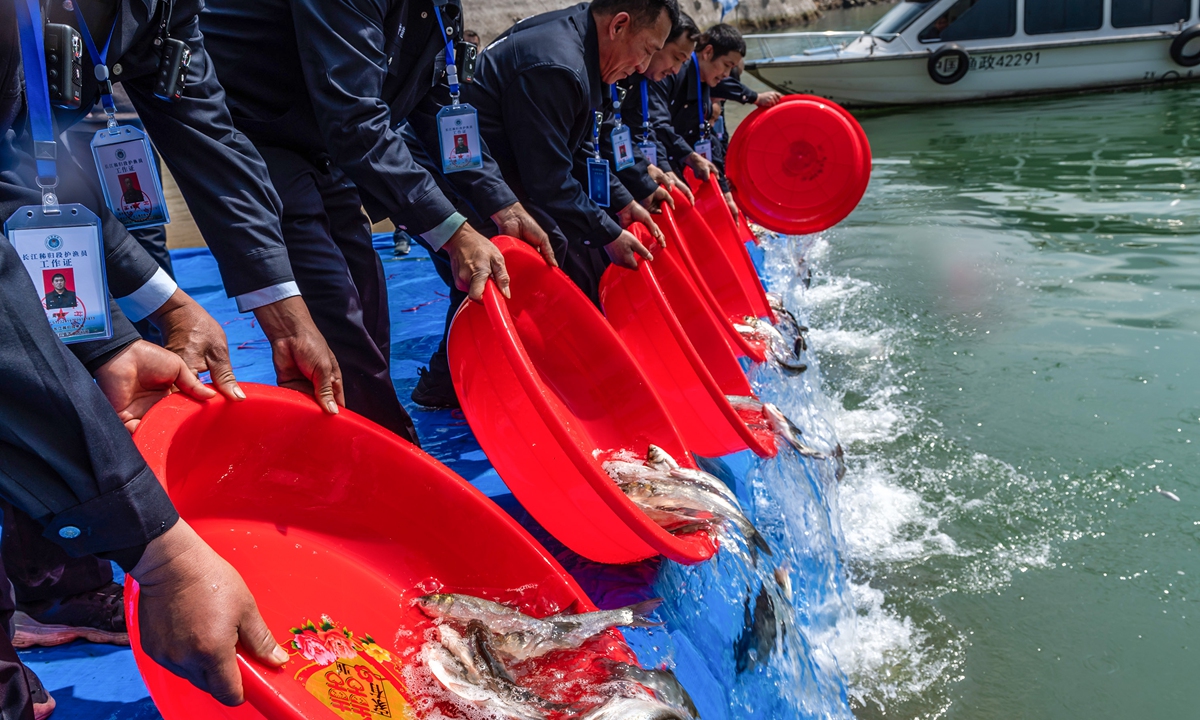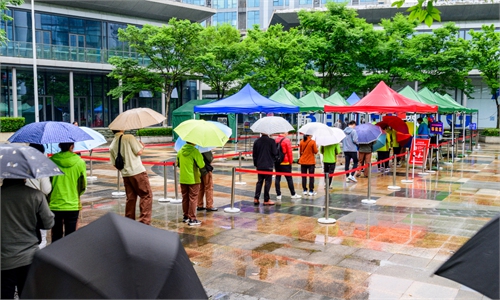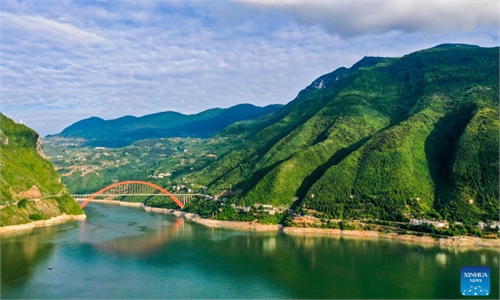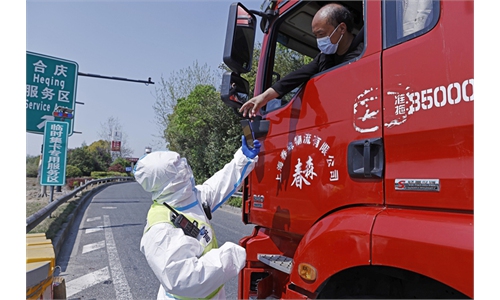IN-DEPTH / IN-DEPTH
Adopting comprehensive, sustainable measures to ensure the effectiveness of fishing ban: expert

Members of a fishing protection team in Yichang participate in the release of farmed fish into the Yangtze River on April 15, 2021. Photo: VCG
The Yangtze River, China's largest river with a unique ecosystem, is an important ecological treasure in China. However, due to overfishing, water pollution, and shipping, the river has been confronted with unique ecological and environmental problems that need to be permanently resolved."We must proceed from the long-term interests of the Chinese nation to put restoring the ecological environment of the Yangtze River at a dominant position, making all-out efforts to protect it, and forbidding large-scale development of the river," Chinese President Xi Jinping, also general secretary of the Communist Party of China Central Committee, said when presiding over the symposium on deepening the development of the Yangtze River Economic Belt held in Wuhan, Hubei Province on April 26, 2018.
Ever since it came into effect on Jan 1, 2021, the 10-year fishing-ban policies in the Yangtze River has been deemed as an innovative model in the country's ambitious approach to achieving ecological conservation targets, and it is also a key measure to reverse the degradation of Yangtze's ecosystem.
"To step up the conservation of the Yangtze River and stop its overdevelopment" is the general, strategic, and overall tone of the development of the Yangtze River Economic Belt. In the Yangtze River protection practice, in addition to the efforts made to reduce water pollution and other protective measures, the 10-year fishing ban is the most direct actions toward the protection of the Yangtze River biodiversity.
The fishing ban, highlighted as a "strategic initiatives," underscores that the 19th CPC Central Committee is fully committed to high-quality development that prioritizes eco-environmental protection and a greener, more sustainable way of life. It also requires strong determination and joint cooperation to ensure that our future generations will benefit from this sustainable initiative.
The 10-year fishing ban is a systematic campaign. To ensure the effectiveness of the fishing-ban policies, it is necessary to intensify efforts to crack down on illegal fishing in all aspects from fishing, transportation, and sales supervision, which requires coordinated action across different regions, departments, and levels. It is also a test for the country's governance capacity.
At present, the fishing ban on the Yangtze River has achieved phased results, as the number of fish and the size of the fish population have been significantly restored. In the long run, certain considerations will have to be made such as paying attention to terms of social governance, the resettlement of fishermen from the fishing industry, as well as the engagement of the general public in this policy.
Authorities need to do everything possible to provide an exit strategy for fishermen as they give up their boats and nets, by coming up with resettlement plans which can create more local jobs, provide relevant training and follow-up services, and help fishermen secure new jobs.
In the meantime, more proposals and scientifically backed educational campaigns are also needed in seeking to raise public awareness about significant threats to the ecological environment illegal fishing could cause and promote civic action to help address these problems.
With all the notable progress made in improving water quality and restoring aquatic biodiversity of the Yangtze River, a beautiful and harmonious aquatic future will be secured for future generations.
The article is compiled based on a Global Times interview with Ma Jun, director of the Beijing-based Institute of Public and Environmental Affairs.



